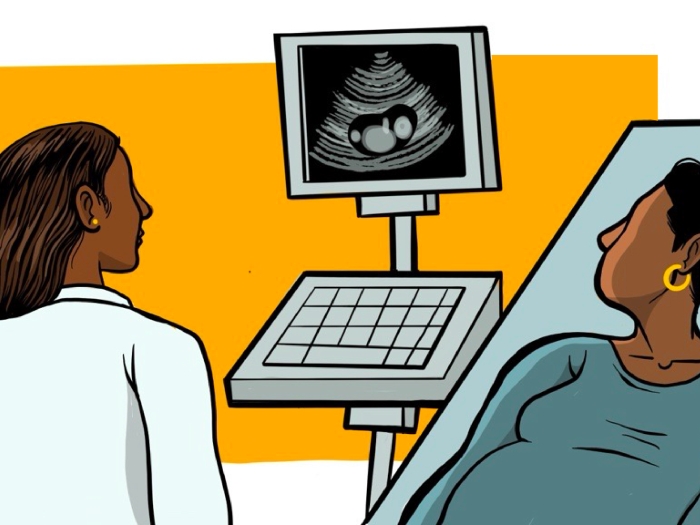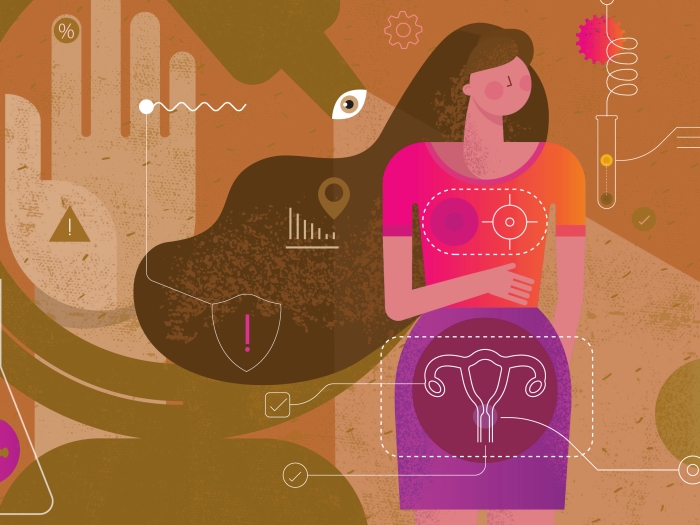With a new app, patients can discreetly and easily monitor their GI symptoms — improving communication with their doctors along the way.
1:00 PM
Author |

Although GI disorders are among the most common medical conditions, many patients don't consider their symptoms serious enough to consult a physician and are left suffering in silence.
MORE FROM THE LAB: Sign up for our weekly newsletter
To educate patients and help them figure out if they need medical attention, William Chey, M.D., professor of internal medicine and director of the GI Physiology Laboratory at Michigan Medicine, co-created MyGiHealth.
The online tool and iOS app assesses the severity of a patient's symptoms and then prepares an automated history for the patient to share with a physician. The system also provides tailored education regarding a user's GI issues.
"We've developed a tool to help patients understand their GI systems and give them information that will help them communicate more effectively to their physician," says Chey, who is also the co-director of the Michigan Bowel Control Program. "The idea was to create a standardized, digital assessment tool that could be used for clinical practice and clinical research."
Chey created MyGiHealth along with Brennan Spiegel, M.D., director of health services research for Cedars-Sinai Health System and professor of medicine and public health at UCLA.
We're not trying to replace the need to see a doctor, but what we are trying to do is help the patient better understand their issues, prepare for their visit with a health care provider, and be aware of their options.William Chey, M.D.
How digital tools can help
Their initial goals were to capture extensive patient symptom information, help patients to better understand their GI issues, and improve the ability of a user to tell his or her unique story to their health care provider. To do this, MyGIHealth uses proprietary algorithms to create a medical history in narrative form which can be shared with a health care provider.
In 2014, using an early version of MyGIHealth, the two gastroenterologists conducted a research study which found that histories created by MyGIHealth were more complete, better organized and more useful than histories written by doctors during a patient visit.
The study's investigators compared HPIs generated through two methods on the same patients. They looked at physician-documented HPIs that were entered into the electronic health record and compared them with HPIs created by MyGIHealth using information entered by study participants.
A panel of 48 reviewers assessed the quality of HPI reports using six criteria — overall impression, thoroughness, usefulness, organization, succinctness and comprehensibility — without knowing which reports were computer-generated or physician-documented.
The program's design
The backbone of MyGiHealth is the GI PROMIS scale framework, which is a standardized set of patient-reported outcomes specifically designed for GI symptoms. Once patients are logged into the platform, it asks them a series of questions about their symptoms. The number of questions is based on how many complaints the patient indicates and their severity.
SEE ALSO: Gut Check: Rome IV Reflects Evolving IBS Understanding
MyGiHealth's ability to interpret a patient's answers, rather than simply regurgitate them, sets it apart from similar platforms, Chey says.
"It's a game-changer," he says. "An accurate history assessment is the first step and essential to arriving at an accurate diagnosis."
To make sure the platform is equally useful to consumers and physicians, MyGiHealth has an education tool that provides supplemental information and videos about what may be causing a patient's symptoms and how he or she might manage them. The suggestions are specifically tailored for the patient based on his or her responses to the questionnaire.
"We're not trying to replace the need to see a doctor, but what we are trying to do is help the patient better understand their issues, prepare for their visit with a health care provider, and be aware of their options," says Chey.
The education component of the platform also includes resources from the American Gastroenterological Association, the largest GI association in the world.
To date more than 70,000 people have used MyGiHealth for personal or research purposes. Chey and Spiegel expect that number to grow with time.
"Harnessing technology to help patients continues to be a very exciting prospect to me," says Chey.

Explore a variety of health care news & stories by visiting the Health Lab home page for more articles.

Department of Communication at Michigan Medicine
Want top health & research news weekly? Sign up for Health Lab’s newsletters today!





